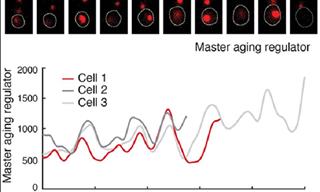Which COVID-19 Patients Have the Highest Risk of Experiencing Long Term Health Effects?
As you’re likely aware, not all patients experience a SARS-CoV-2 infection the same way; some may even be asymptomatic. They never know where they got it. So, it’s only logical that those who are asymptomatic and those who have recovered from a mild form of the virus may notice very few if any changes in their wellbeing.
Patients suffering from a mild case of COVID-19 may experience weakness and fatigue for some time, or have a cough and chest pains for a few weeks after recovery, but that’s pretty much it. Generally speaking, the people who have the highest risks of developing any long term effects are those who had pneumonia and required oxygen. At the same time, they tested positive for the virus.
High-risk populations include:
- People over the age of 65
- Diabetic patients
- Patients with chronic diseases - liver, lung, heart, and kidney
- People with compromised immune systems
- Morbid obesity sufferers.
The Physical Long Term Effects of COVID-19
COVID-19 in a viral respiratory infection, so one of the main residual effects of the disease will involve the respiratory system. Those who had a moderate to severe case of the virus may have asthma or suffer shortness of breath and rough breathing for a prolonged time.
Severe Coronavirus patients may also develop Acute Respiratory Distress Syndrome (ARDS) in the course of the disease, which is a life-threatening lung injury. What occurs is that fluids leak into the lungs. ARDS is a medical emergency, and patients who have overcome the condition often need long-term treatment and a lengthy rehabilitation process.
In addition, COVID-19 increases the level of inflammation in the body dramatically, which can lead to damage in other organs and tissues.
Doctors know that some severe patients may suffer from long-term brain, kidney, and heart damage as a result of lung failure. There are studies from China that found a higher-than-normal incidence of kidney and heart damage among Coronavirus patients.
A similar picture appears to follow in the western world, too, with a recent Washington Post article concluding that “clinicians around the world are seeing evidence that suggests the virus also may be causing heart inflammation, acute kidney disease, neurological malfunction, blood clots, intestinal damage and liver problems”.
Lastly, weeks spent under the ventilator, or simply in a bed, with no appetite or strength to move, may weaken the musculoskeletal system. This means that many patients may be weak and experience impaired mobility in the aftermath of the disease.
Neurological and Mental Effects of SARS-CoV-2 Infections
The Long Term Effects on the Brain.
The human brain is dependent on a steady supply of oxygen, and respiratory infections of the lungs like the Novel Coronavirus may be significantly reducing oxygen supply to the brain. As a result, patients can feel neurological symptoms both during and after the disease. Confusion, inability to concentrate, memory problems, and mood swings are just some of the cognitive symptoms COVID-19 patients may experience. Researchers are not sure yet how long these symptoms can persist.
Another way the virus may be affecting the brain is rather direct. A recent Chinese study published in the prestigious JAMA journal suggests that the virus may be attacking the brainstem (the area of the brain that connects the spinal cord and the brain hemispheres), and is responsible for several essential bodily functions, including breathing and sense perception.

The authors of this study suggest that one of the earliest symptoms of COVID-19 patients is often the loss of the sense of smell, which, as the authors suggest, means that the virus is damaging the brainstem and possibly even the breathing centers in the brainstem. We are yet to find further confirmation of that theory in future studies.
Mental Effects. For some people, the physical after-effects of COVID-19 aren’t the worst, but it is the psychological trauma that will continue affecting their lives in the long run. It is no secret that severe illnesses come with certain mental repercussions, with many intensive care patients, hospitalized with COVID-19 or not, and those who have spent a lot of time in the hospital often experiencing symptoms of trauma, anxiety, depression and even PTSD as a result.
Knowing the stigma and mass fear of the Novel Coronavirus we all observe on a worldwide level, one can only imagine how traumatizing it may be to suffer from the disease. Apart from that, the lives of many patients change dramatically when they are discharged from the hospital. Many can no longer sustain a lifestyle they used to be part of, so any adverse mental reactions of COVID-19 patients are completely justified. Unfortunately, validation of these symptoms doesn’t make their life any easier.
The bottom line is that there are still so many things we do not know about the Coronavirus and its long term effects on the human body and mind. That said, it seems that most people with a mild form of the condition seem to fully recover from the infection in a matter of a few weeks. For those who have suffered through a severe form of COVID-19, however, it will take a long time to recover, both physically and mentally.
 Go to BabaMail
Go to BabaMail























































